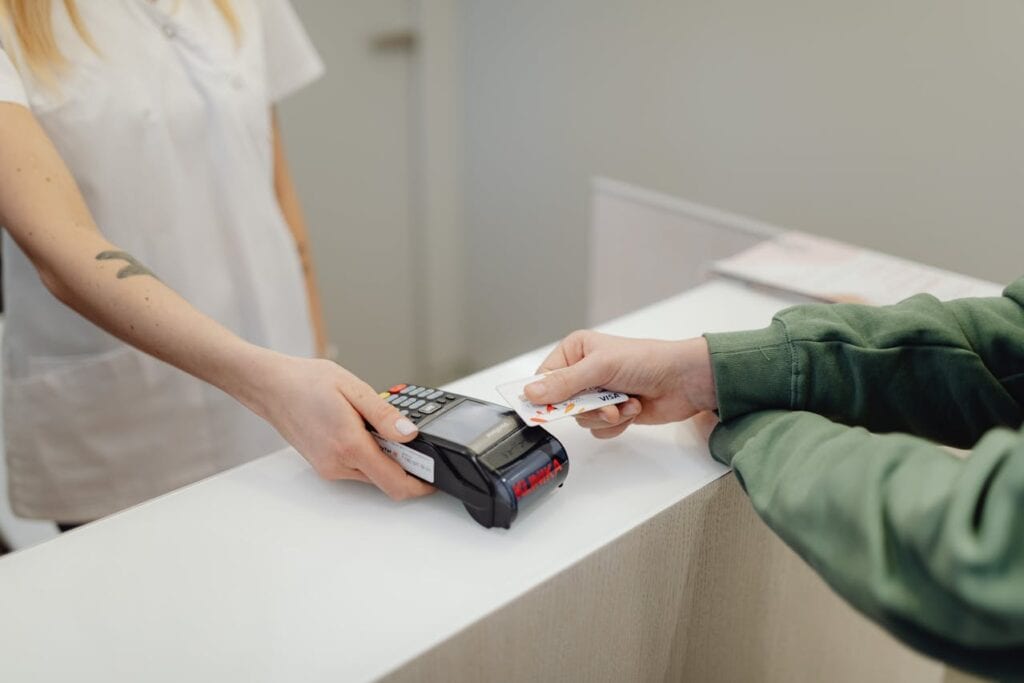
By Zackary Rhodes May 28, 2025
Managing donations for nonprofits and 501(c)(3) organisations involves more than just taking in money. Retaining donor trust and adhering to IRS regulations depend on accurate tracking, reporting, and acknowledgement. Behind the scenes, merchant services are essential to the processing of donations, the speed at which funds are made available, and the gathering of information for audit and tax purposes.
Many nonprofits concentrate on donor outreach and fundraising tactics, but it’s just as critical to understand how payment processing tools impact financial documentation. The proper merchant services configuration guarantees seamless operations and complete compliance, whether it is through managing 501c3 donor records, providing tax-compliant donation receipts, or integrating with nonprofit accounting software.
Understanding the Basics of Merchant Services for Nonprofits
Merchant services refer to the tools and systems that allow organizations to accept debit or credit card payments, both online and in-person. For nonprofits, this usually involves donation platforms, mobile payment tools and virtual terminals tied to a merchant account. A merchant service provider handles the secure transmission of donor payment data, facilitates the deposit into your bank account, and stores transaction details for reconciliation. But their job doesn’t stop at collecting funds. They also impact your ability to issue proper receipts, track recurring gifts and reconcile donations for year-end reports.
The Importance of Transaction Transparency
Donors often expect to get a formal receipt for their contributions, which they can use to file taxes, as well as instant confirmation. This procedure may become more difficult if merchant services are unclear or uncustomizable. For instance, it becomes more difficult to issue a clear, tax-compliant donation receipt if transaction records lack donor information or breakdown fees. To make sure that your organisation and your donors receive the information they require, pick a merchant service that integrates with your donation platform and offers comprehensive reporting.
Tax-Compliant Donation Receipts: What the IRS Requires
A simple thank-you email is not enough when it comes to acknowledging charitable donations. The IRS requires specific information to be included on tax-compliant donation receipts, especially for contributions of $250 or more. This includes:
- The amount of the donation
- The date of the contribution
- The name of the organization
- A statement that no goods or services were provided in exchange (or a description if they were)
Merchant services can either make this process automatic or force your team to fill in gaps manually. Some payment processors or donor platforms generate receipts instantly with all required fields, while others require add-ons or manual steps.
Automating Acknowledgments with the Right Tools
Though they depend on the underlying merchant service to deliver precise, timely transaction data, many donation platforms provide automatic receipt generation. Your receipt process may be hampered if the processor fails to send all necessary information, such as the donor’s name, email address, and the total amount received after fees. Accurate, timely, and compliant acknowledgements are guaranteed when you use merchant services that interface directly with donor management software and nonprofit accounting tools. Additionally, this lessens the possibility of missing donors completely or sending inaccurate receipts.

Maintaining Accurate 501c3 Donor Records
Keeping detailed and organized 501c3 donor records is essential for both internal reporting and external transparency. Grant applications, audits and donor relations all depend on the accuracy of your donation data. Merchant services directly affect how donor records are created and updated. When systems are well-integrated, every transaction feeds automatically into your donor database, complete with notes on giving frequency, amounts and payment methods.
Tracking Recurring and One-Time Gifts
Recurring donations are a key revenue source for many nonprofits. Merchant services must be able to manage these transactions reliably, securely and with full visibility. If a donor’s card fails or expires, the system should alert you or the donor and provide an easy way to update payment information. All recurring transactions should be timestamped and linked to a donor profile so your 501c3 donor records remain complete and consistent. With accurate data, you can build stronger donor relationships, track lifetime value and analyze giving patterns over time.
Integration with Nonprofit Accounting Tools
For nonprofit bookkeepers, reconciliation is one of the most time-consuming tasks during tax season. Without automation, matching bank statements, donation records, and merchant service reports can become a laborious task. Monthly and yearly reporting can be made more efficient by using a merchant service that seamlessly integrates with nonprofit accounting programs like QuickBooks, Aplos, or Wave. This lowers the possibility of mistakes, aids in monitoring the effectiveness of campaigns, and promotes adherence to national and state laws.
Handling Fees and Net vs Gross Contributions
One of the most common issues nonprofits face is misunderstanding the difference between gross and net donation amounts. Donors might give $100, but processing fees mean the nonprofit receives only $97.50. If you issue a receipt for the net amount, you’re likely out of compliance. The correct practice is to issue receipts based on the full donation amount before fees. That’s why it’s important that your merchant service clearly reports both figures and stores them alongside the donor’s profile in your accounting system.
Enhancing Donor Trust Through Clear Payment Experiences
Modern donors seek ease and transparency. A quick, secure, and straightforward donation process enhances the overall experience. Merchant services providing branded checkout pages, mobile-friendly forms, and immediate confirmations can enhance conversion rates and lessen donor attrition. Equally important, safe and compliant systems instill confidence in donors that their contributions are managed responsibly. This is particularly valid for repeat donors, who consistently place their trust in you by providing their card information over time.
Secure Payment Gateways and Data Protection
Your merchant service provider should offer secure payment gateways with features like data encryption, PCI compliance and fraud detection. These tools protect both your organization and your supporters. Offering multiple payment options; including credit, debit and ACH; makes giving more accessible. Some systems even allow donations via text or mobile apps, broadening your reach and boosting convenience.
Tips for Choosing the Right Merchant Service
Not all merchant service providers understand the needs of nonprofits. When evaluating options, consider the following:
- Can the provider generate tax-compliant donation receipts automatically?
- Does it integrate with your nonprofit accounting tools and CRM?
- Are both gross and net donation amounts clearly reported?
- Can it support recurring gifts and manage expiring cards?
- Are fees transparent and tailored for nonprofit budgets?
Taking time to choose a provider that meets these needs will save countless hours of administrative work and improve the donor experience.

Conclusion: A Backbone for Sustainable Fundraising
Despite working in the background, merchant services are essential to nonprofits’ ability to manage relationships, process donations, and maintain compliance. The proper system adds efficiency and professionalism to every transaction, from providing tax-compliant donation receipts to keeping thorough records of 501c3 donors and integrating with nonprofit accounting software. You can improve your back office and public image by choosing merchant services that meet donor expectations and your operational requirements. By doing this, your organisation will be in a better position to confidently grow, raise money, and carry out its mission.